Dangers Of Gum Disease - Berkeley, CA
Avoid Gum Disease With An Experienced Periodontist!
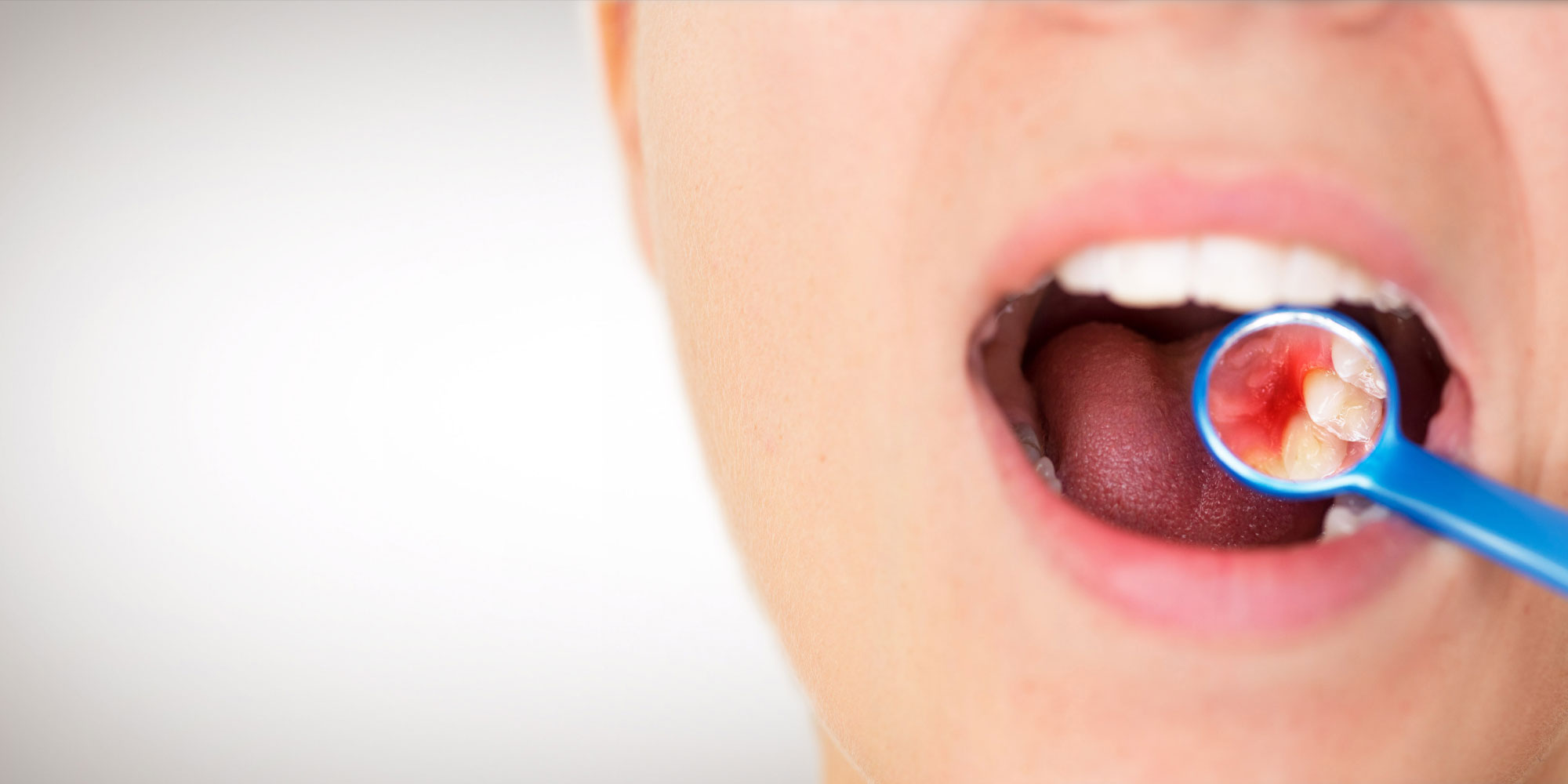
Enjoy Optimal Oral Health
An estimated 75% of Americans have some form of gum disease which can be linked to serious health complications and causes dental problems that are avoidable. The daily task of brushing and flossing your teeth has never been more important in order to avoid gum disease and reduce the risks that it places on your overall health, than it is today.
Gum disease has been found to be associated with a heightened risk of several significant health complications. These include heart disease, stroke, pancreatic cancer, premature birth or low birth weight in babies, memory loss or dementia, and diabetes. Maintaining good oral hygiene and seeking timely dental care can play a crucial role in reducing the risk of these serious health conditions.
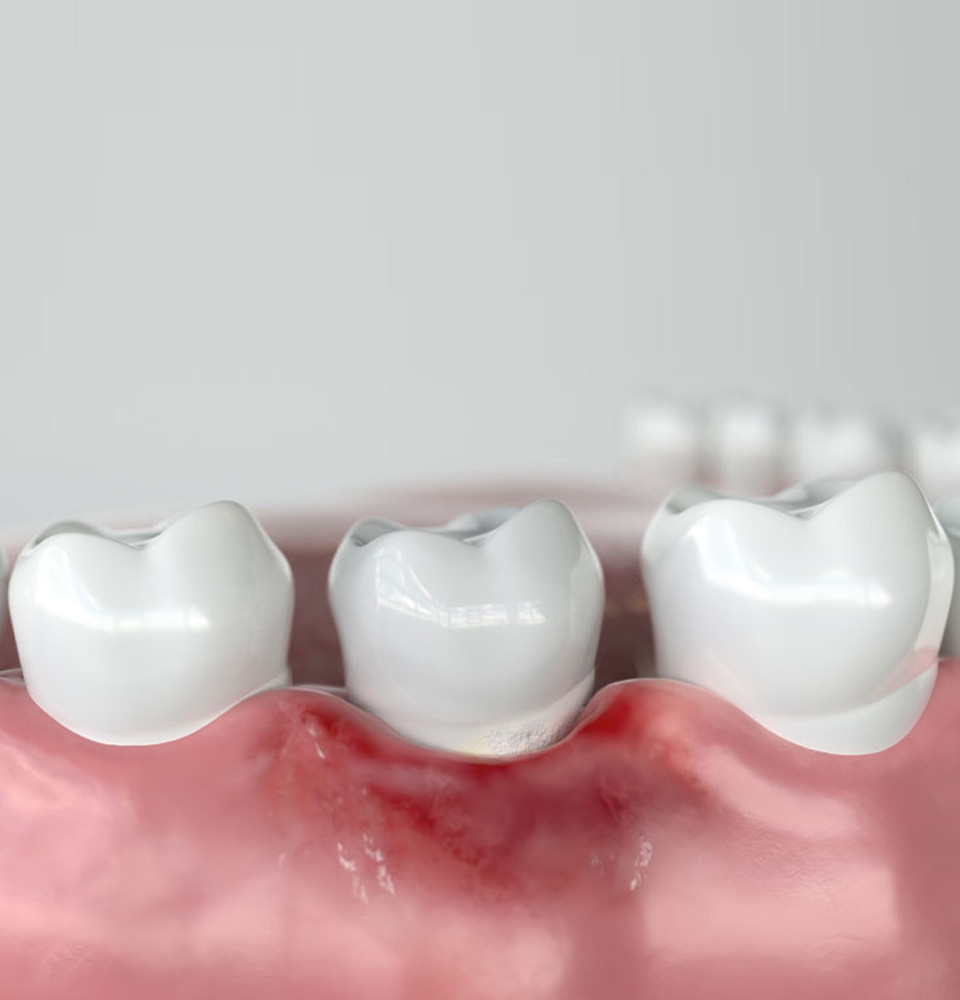
Symptoms of Poor Oral Health
- Bleeding gums
- Pus around a tooth
- Gum Recession
- Inflammation of the gums
- Swollen or red gums
Gum Disease Informational Videos
Dental Progression of Gum Disease
Gum Disease Can Hurt Your Pregnancy
The Warning Signs of Gum Disease
How Minor Gum Disease Symptoms Can Lead to Major Infection
How Periodontal Disease Endangers Your Heart
Periodontal Disease Worsens Diabetes
Stages of Gum Disease
The daily task of brushing and flossing your teeth has never been more important in order to avoid gum disease and reduce the risks that it places on your overall health than it is today. With hundreds of bacteria that are known to cause periodontal disease present in the mouth, thorough homecare habits and regular dental visits are vital to your health.
It has been estimated that 75 percent of Americans have some form of periodontal disease. This condition can be linked to serious health complications and often causes dental problems that are avoidable.
The stages of gum disease are progressive and can result in eventual tooth loss if left untreated. The earlier that this disease is identified and treated, the better your chances are to keep your teeth for the rest of your life.
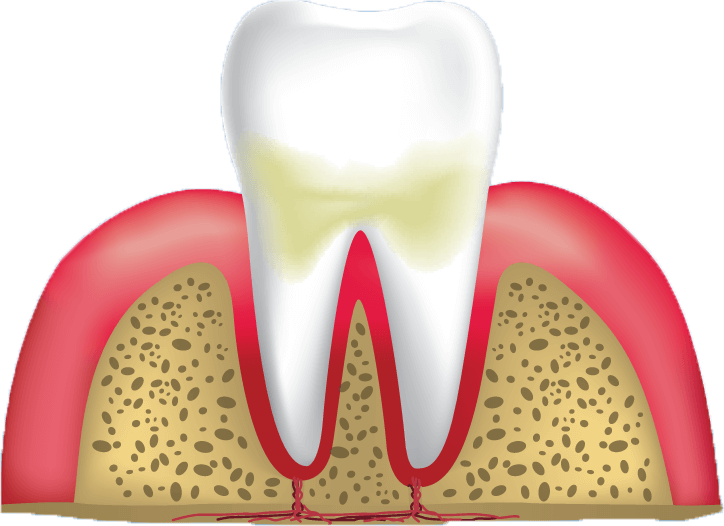
Stage 1: Gingivitis
Gingivitis is the earliest stage and is caused by plaque and bacterial buildup around the gum line. If you neglect to brush or floss your teeth daily, these bacteria can grow and cause the disease.
Gingivitis causes inflammation of the gums. Gums that should otherwise be pink will appear red and swollen and you might experience bleeding when you brush or floss.
However, at this point, gingivitis can still be reversed since the bone and fibers that hold your teeth in place have not yet been affected. The gum tissues heal once the irritants have been removed from the teeth and gums, thus eliminating gingivitis.
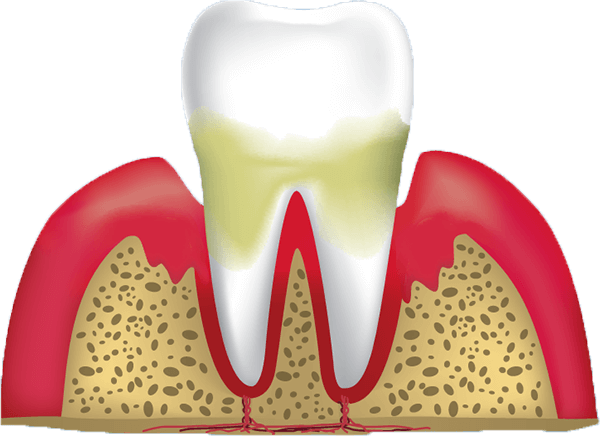
Stage 2: Periodontitis
If gingivitis is left untreated, the condition can progress to periodontitis. At this stage, the supporting bone and fibers that hold your teeth in place have been irreversibly damaged.
The spaces between your teeth and gums begin to form “pockets,” which are deep hollow areas around the teeth that trap plaque and bacteria. These deeper pockets allow plaque, bacteria, and tartar to accumulate, destroying the structures that support the teeth.
Your gums may recede and form gaps between your teeth. Visiting a doctor for immediate gum disease treatment is necessary to prevent further damage and tooth loss.
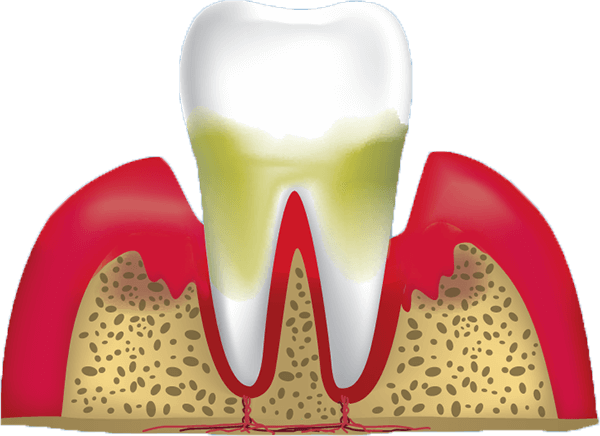
Stage 3: Advanced Periodontitis
In this final stage, periodontitis has progressed and become advanced periodontitis.
Bacteria that was allowed to grow, spread, and cause destruction has destroyed the connective tissues and bone that support the teeth.
The pockets that formed in the previous stage have become much deeper. Your teeth can shift or become loose. Loose teeth that move around in your mouth may affect your bite.
At this stage, seeing a doctor for gum disease treatment is needed to save the teeth.
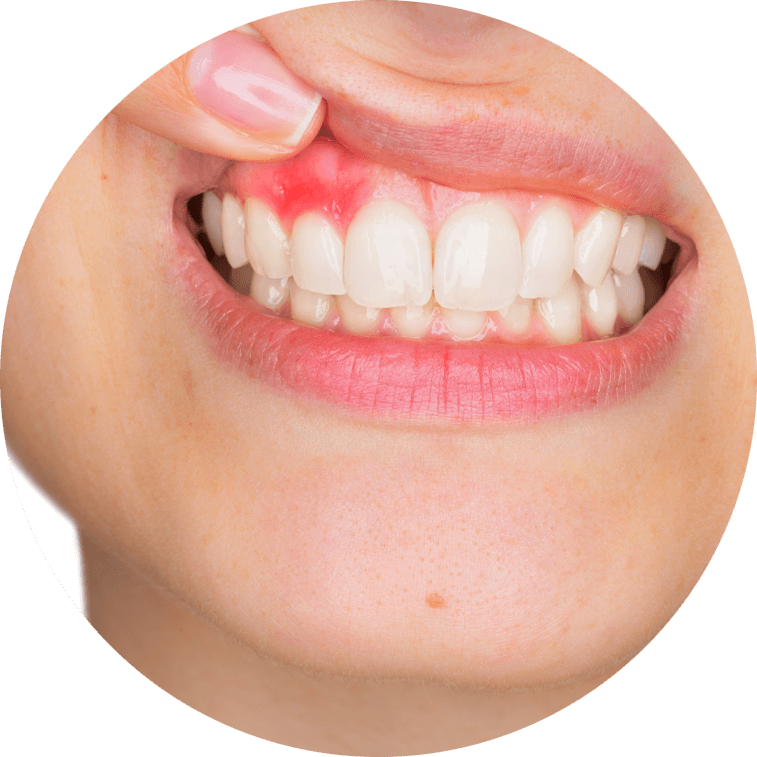
Periodontal Disease Can Cause Tooth Loss
If you notice your teeth are moving or shifting in any way, you may have gum disease that needs to be treated right away. Shifting teeth are a sign of advanced periodontal disease and should not be ignored.
When teeth start to move and become loose because of deteriorating bone, the risk of tooth loss is very high. Some of the common causes of loose teeth include: periodontal disease, trauma or injury to the mouth, or health problems that are affecting the jaw bone.
You could be experiencing loose teeth if you’re beginning to notice the presence of pus around the gums, bleeding gums, food getting stuck in spaces between teeth, receding gums, or swollen gums.
Tooth and Bone Loss
Teeth can be lost for a variety of reasons. Anything from disease, injury, birth defects, to decay can result in teeth being lost or removed. However, many dental and health problems can result from tooth loss or removal. The number one reason that adults lose their teeth today is due to periodontal disease, or gum disease. Therefore, if you notice that your teeth are becoming lose, it is very important to seek gum disease treatment from an experienced doctor as soon as possible.
Diet
Without properly aligned teeth, an individual might not be able to chew correctly, and the diet could be affected. With missing teeth, or no teeth altogether, chewing becomes very difficult or even impossible. The diet then becomes restricted to soft, easily chewed foods. This kind of diet might not meet the nutrition needs of the body which can cause constipation, weight loss, arthritis, indigestion, and rheumatism.
Teeth are important to meeting the nutritional needs of the body. Without them, the health of the body can be severely impacted. Seeking gum disease treatment from a doctor can help to keep your diet healthy, providing your body with the proper nutrients that it needs.
Speech
Teeth play a major part in speech. Some letter sounds such as s, z, d, x, n, th, and sh are made with tongue to tooth contact. Without teeth, these sounds are difficult to make and may result in a lisp. Lisping can be an embarrassing condition and may make it hard for you to be understood.
The tongue is also affected by lost teeth. With no teeth to keep it in place, the tongue tends to broaden out and fill in the newly open space. This thickened tongue is harder to control and may also result in difficult to understand speech.
Bone Loss in the Jaw
Teeth do more than just help us chew our food and speak. They actually serve to stimulate the bone in the jaw. Each time you chew, the teeth stimulate the bone. Without this natural stimulation, the alveolar bone, which is the portion of the jaw bone that anchors teeth in the mouth, begins to break down and is resorbed by the body. If there are no longer teeth present that need the jaw bone, the bone deteriorates and disintegrates.
The rate of deterioration varies per person, however, it begins almost immediately after a tooth is lost or removed and continues throughout life. Once deterioration reaches a certain point, dental prosthetics, such as dentures, may no longer be useful if there is not enough bone to support them. A doctor can help to determine if you have suffered any bone loss. If you have experienced bone loss that is too far gone to be addressed with gum disease treatment, your doctor can discuss tooth replacement options during your consultation.
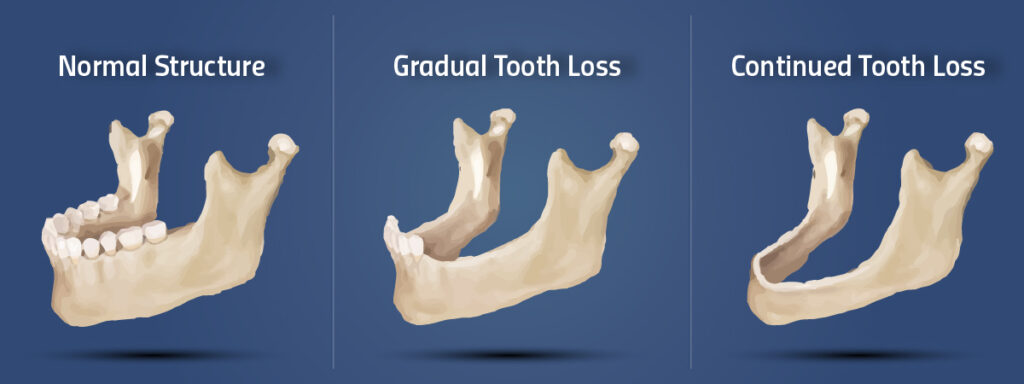
Since gum disease is the primary cause of adult tooth loss, it is imperative to seek treatment from your periodontist in Berkeley, CA at the earliest sign of this condition. Schedule your appointment with an experienced doctor it determine if gum disease treatment is right for you.
Additional Gum Disease Information
Common Causes of Bad Breath
Bad breath may be a side effect of poor dental hygiene, but it can also be a sign of health problems, infections in the mouth, or a result of unhealthy lifestyle habits. Common causes of bad breath include:
- Gum Disease
- Lifestyle Habits
- Food Choices
- Oral Hygiene Routine
- Chronic Illness
- Dry Mouth
Symptoms of Oral Health Problems
Some of the red flags of an oral infection include:
- Bleeding Gums
- Pus Around a Tooth
- Gum Recession
- Inflammation of the Gums
- Swollen or Red Gums
Tooth Loss Affects Your Whole Life
Teeth can be lost for a variety of reasons. Anything from disease, injury, birth defect, to decay can result in teeth being lost or removed. Things that may occur as a result of tooth loss include:
- Change in Diet
- Difficulty with Speech
- Bone Loss in the Jaw
- Misalignment of the Teeth
- Changing Facial Appearance
Looking to restore your gum health?
Schedule Your Consultation with Dr. Chertok today!
Gum Disease Risk FAQs: Protecting Your Health in Berkeley, CA
Gum disease is best treated in its early stages with professional cleanings and improved oral hygiene. As it progresses, deeper treatments like scaling and root planing, laser therapy, or osseous surgery may be required to stop further bone and tissue loss and prevent tooth loss.
In advanced stages, your periodontist may perform deep cleaning procedures and surgical interventions to reduce pocket depths, remove diseased tissue, and regenerate lost bone. These steps help stabilize loose teeth and prevent the need for extraction.
Consistent brushing, flossing, and routine periodontal maintenance visits are key. Avoiding tobacco and treating early symptoms like bleeding gums or bad breath quickly helps prevent disease from progressing to irreversible stages.
Periodontists specialize in diagnosing and treating gum disease at every stage. Dr. Chertok offers advanced procedures, including laser therapy and bone regeneration, that go beyond routine cleanings and are essential for saving teeth in moderate to severe cases.
Bleeding gums, redness, swelling, persistent bad breath, or gum recession are all signs of early gum disease (gingivitis). Catching these signs early makes treatment easier and more effective.
Yes. Gum disease has been linked to systemic health conditions like heart disease, stroke, diabetes, and even pregnancy complications. The inflammation caused by oral bacteria can spread through the bloodstream and affect overall health.
As gum disease progresses, the bone and connective tissue supporting your teeth break down. This leads to deeper gum pockets, loose teeth, bite changes, and eventual tooth loss if left untreated.
Gum disease is the leading cause of adult tooth loss. Once the bone around the teeth is gone, it cannot be restored without surgical intervention. Treating early symptoms now can save your teeth and prevent costly procedures later.
Missing teeth can impact your ability to chew, speak clearly, and maintain a nutritious diet. It also leads to bone loss in the jaw and facial structure changes. Treating gum disease protects your smile and your long-term wellness.
If you’re noticing signs of gum disease or concerned about tooth loss, schedule a consultation with Dr. Keith Chertok in Berkeley, CA. Early intervention can preserve your teeth, protect your health, and restore confidence in your smile.

